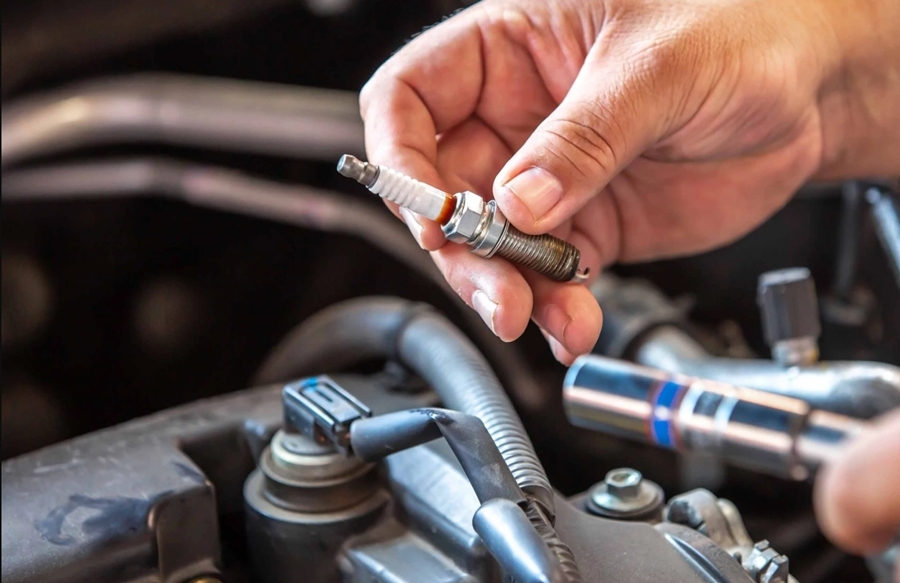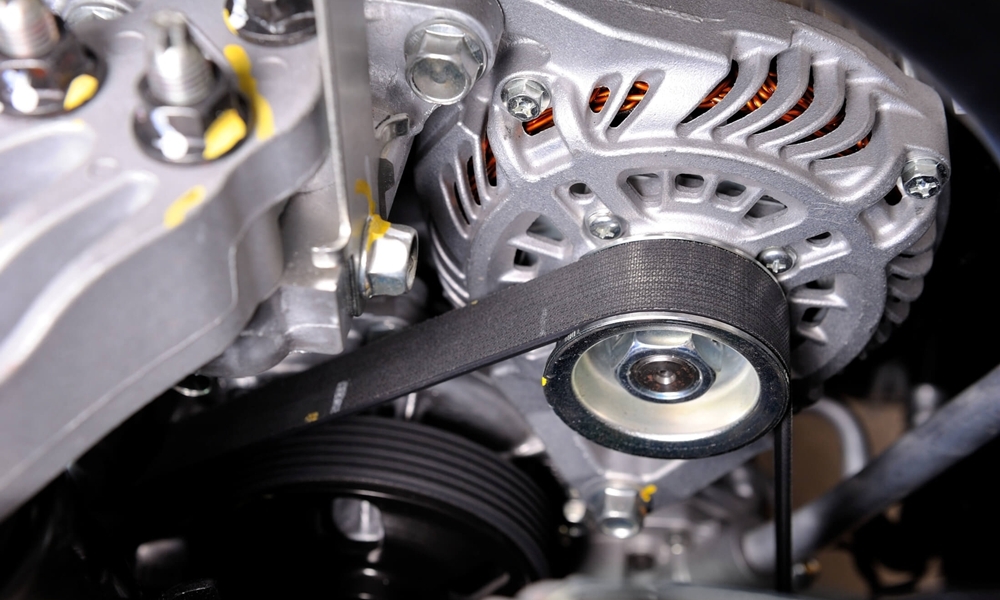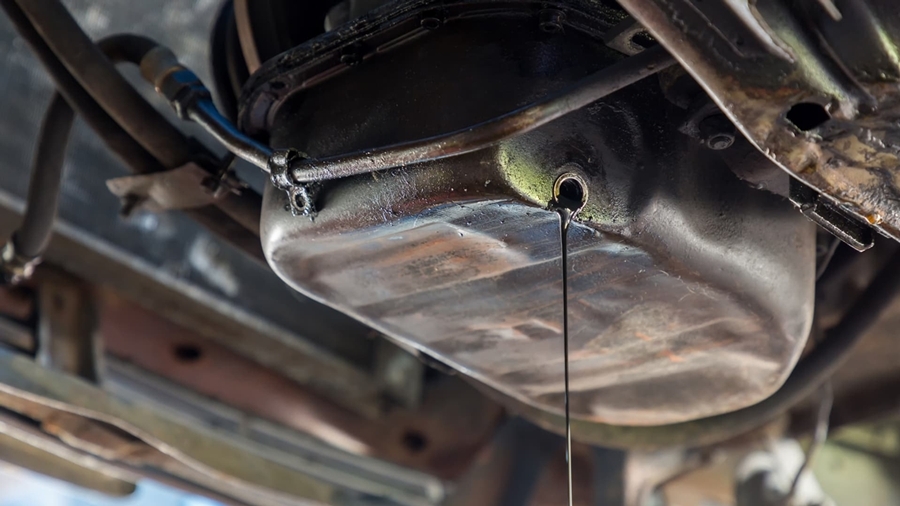Introduction: The Spark That Keeps Your Engine Running
Introduction: The Spark That Keeps Your Engine Running
How long can spark plugs last? Honestly, if I had a dollar for every time someone asked me that, I could buy a full set of premium iridium plugs and still have enough left over for lunch. It’s one of those questions people either overthink—or totally ignore until their engine starts coughing like it’s got a cold.
Here’s the thing: spark plugs can last anywhere from 20,000 to 120,000 miles. Yeah, that’s a pretty big gap, and it all comes down to what type of spark plug you’re using. I’ve had customers come in with 100,000 miles on iridium plugs that still looked solid, and others limping in at 25,000 with copper ones that were toast.
No matter what brand you’re running—Bosch, AC Delco, or the random ones from the corner parts store—knowing how long can spark plugs last based on the materials they’re made from can save you a ton of money and stress. I’ve seen way too many people push them past their limit and end up with misfires, bad fuel economy, and worse.
Also read: Engine Replacement Cost 2025: Eye-Opening Breakdown
Let’s break it down so you know exactly what to expect from your plugs and to answer your question about how long can spark plugs last, whether you’re DIY-ing your maintenance or just want to avoid getting upsold at the shop.
Copper Spark Plugs: Reliable but Short-Lived
Let’s start with the old-school option—copper plugs. They’re like that reliable buddy who shows up every time you call, but can’t hang out for too long. So, how long can spark plugs last when they’re copper? You’re looking at around 20,000 to 40,000 miles, depending on how you drive.
Here’s what’s great about copper plugs:
- They’re excellent conductors of electricity and heat
- Super affordable
- Great for older vehicles
But the downside? They wear out fast. I had a guy come in once with a ’95 Civic bragging he’d pushed 50,000 miles on copper plugs. His engine was misfiring like crazy, drinking gas like a V8, and starting it in the morning took a miracle. Point is, stretching copper plugs too far is just asking for trouble.
If you’re wondering how long can spark plugs last without becoming a problem, copper is not the plug you want to gamble with.
Platinum Spark Plugs: The Middle Ground
Next up, platinum spark plugs. These are the solid middle option—not the cheapest, not the priciest, but they hit that sweet spot for most drivers. So, how long can spark plugs last when they’re platinum? Usually between 60,000 to 100,000 miles, and even longer if you’re using double platinum versions.
Why people love them:
- The platinum tip holds up much better than copper
- They handle heat like a champ
- Fewer replacements over the life of your car
- They work well with today’s ignition systems
Platinum plugs may not have the flashiness of iridium, but they’re dependable. If you do a lot of highway driving or just want to avoid spark plug changes every couple years, platinum is a great option when you’re thinking about how long can spark plugs last without cutting corners.
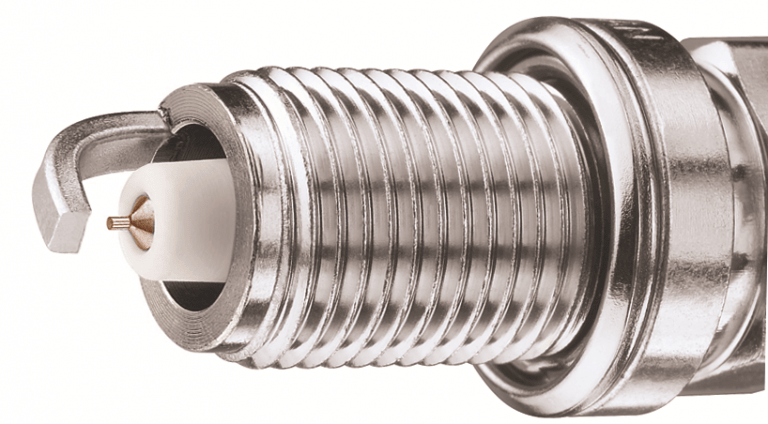
Iridium Spark Plug Longevity: The Premium Choice
Now we’re getting into the high-end stuff. Iridium spark plugs are the gold standard—like the distance runners of the spark plug world. How long can spark plugs last when they’re made of iridium? We’re talking 100,000 to 120,000 miles, easy. And with proper maintenance? I’ve seen some last even longer.
Here’s why iridium plugs are worth the hype:
- Iridium is the toughest electrode material out there
- That ultra-fine wire design creates a stronger, cleaner spark
- They resist electrode erosion like champs
- They perform consistently in all kinds of driving conditions
That fine wire tip isn’t just for show—it helps produce a more concentrated spark, which means better combustion, smoother starts, and improved fuel efficiency. Sure, iridium plugs cost more upfront (sometimes three or four times more), but when you break it down over time? They’re often cheaper per mile. And honestly, your engine just feels smoother and stronger with them installed.
So when someone asks how long can spark plugs last, iridium plugs set the bar high.
Spark Plug Material Showdown: What Actually Matters
I’ve installed thousands of spark plugs over the years, and trust me—the difference in materials isn’t just marketing fluff. How long can spark plugs last depends heavily on what they’re made of, and it makes a bigger difference than most people think.
Real-World Performance You Can Feel
Electrode erosion is no joke. Copper plugs usually start wearing noticeably around 20,000 miles, while iridium ones can hit 80,000 and still look fresh. But it’s not just about lifespan—it’s about consistent performance the whole way through.
Here’s the deal: as spark plugs wear, the gap between the electrodes widens. A copper plug might start with a 0.044″ gap and be pushing 0.065″ after 30,000 miles. That wider gap makes it harder for the spark to jump, especially when the engine is cold or under heavy load.
If your car hesitates or stumbles when you hit the gas after 40,000 miles or so, it’s probably not your engine throwing in the towel—it’s just tired plugs. And knowing how long can spark plugs last can help you avoid unnecessary panic (and repair bills).
Crunching the Numbers: Is Premium Worth It?
Let’s talk money for a sec. Say copper plugs cost about $3 each and last 30,000 miles. You’d go through three sets (plus labor) to cover 100,000 miles. That’s roughly $40 in plugs, not counting installation.
Now, iridium plugs might cost $12 each, but if they last the full 100,000 miles? You only buy them once. Even if you’re paying more up front, you’re saving in the long run—less labor, fewer part runs, and better fuel efficiency.
And here’s the best part—those extra mpgs you get from iridium plugs? They add up. I’ve had customers gain 2 to 3 miles per gallon just from switching to premium plugs in older cars. So when someone asks how long can spark plugs last, I always tell them to look past the price tag and think about the big picture.
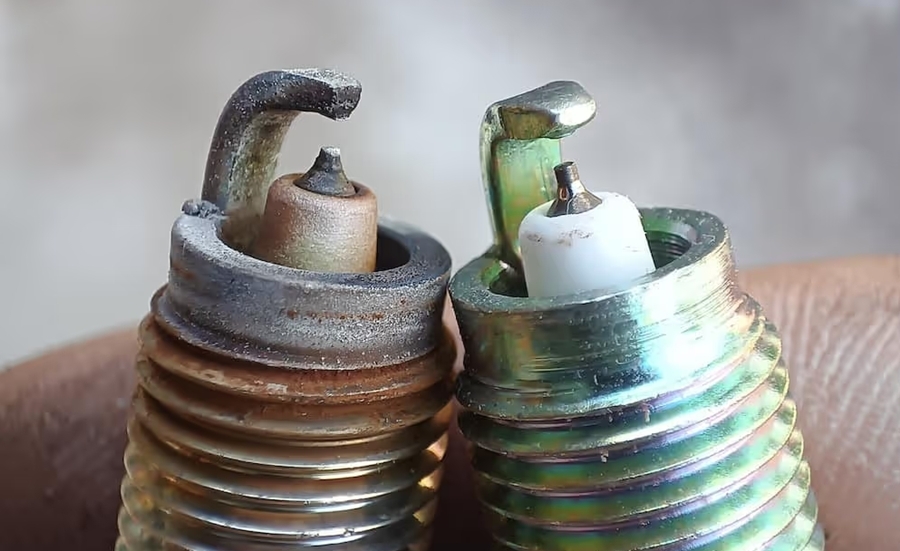
When Your Spark Plugs Are Basically Begging for Help
Your engine is always trying to tell you something—but let’s be honest, most of us don’t speak fluent “car.” The good news? Once you learn to spot the signs, you can catch bad spark plugs before they leave you stranded in a grocery store parking lot or, worse, on the side of the highway.
Your Engine’s Trying to Get Your Attention
One of the first clues your spark plugs are done is misfiring. It usually starts small—maybe a slight hesitation when you hit the gas or a weird vibration while idling at a red light. Then it gets worse. Before you know it, the whole car’s shaking and your passengers are side-eying you like, “Uhh, is this normal?”
Here are a few other signs your spark plugs are on their last leg:
- The car struggles to start, especially on cold mornings
- Your gas mileage has slowly taken a nosedive
- Acceleration feels lazy or just… not there
- You hear knocking sounds when going uphill or under load
One time I had a guy come in who’d been ignoring a misfire for months because, in his words, “It didn’t feel urgent.” Well, when we pulled the spark plugs, they were so worn they barely looked like plugs. And because he waited so long, the bad plugs had fried his ignition coils too. What could’ve been a $60 fix turned into a $600 repair. Ouch.
Don’t Wait Until It’s a Problem
The thing is, most people don’t think about spark plugs until something goes wrong. But knowing how long can spark plugs last helps you avoid all of this. If you stay ahead of the wear, you won’t just avoid misfires—you’ll get better fuel economy, smoother acceleration, and a happier engine overall.
So yeah, your engine’s not being dramatic. If it’s giving you hints that something’s off, especially past that 30,000, 60,000, or 100,000-mile mark (depending on your plugs), it’s probably time to ask: how long can spark plugs last—and are mine past their prime?
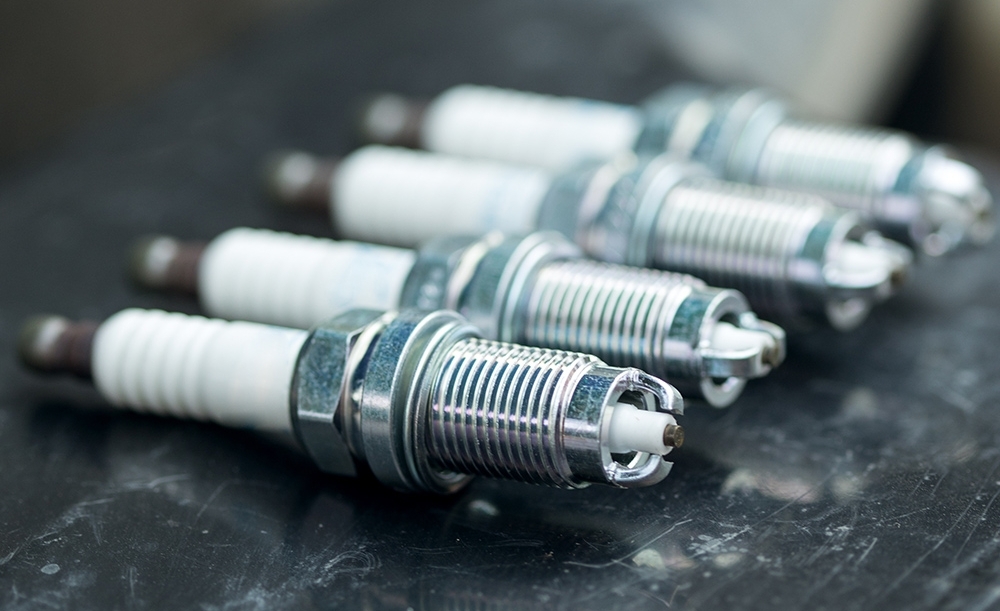
What Spark Plugs Actually Look Like (When They’re Talking Back)
Sometimes the best way to know what’s going on with your engine is to yank a plug and take a peek. A little wear is totally normal—electrodes start to round off gradually over time. But when you see odd patterns, like oil-soaked tips or crusty carbon buildup, that’s your engine throwing up a red flag.
If your spark plug looks oily, chances are you’ve got worn valve seals or piston rings letting oil sneak into the combustion chamber. If it’s black and sooty, it might be from too many short trips or a rich fuel mixture. Either way, it’s telling you something’s off.
One of the most important checks? The plug gap. Most engines want something between 0.028″ and 0.060″. When that gap gets too wide from wear, your spark gets lazy—and that’s when you start feeling misfires, hesitation, and sluggish starts.
What Really Affects How Long Can Spark Plugs Last?
You’d think mileage would be the only factor, but it’s way more than just how far you’ve driven. How long can spark plugs last depends on your habits, your car’s condition, and even your daily commute.
How You Drive = How Fast They Wear
Quick drives around town are a spark plug’s worst nightmare. When your car only runs for 10 minutes at a time, the engine never gets fully warm—and unburned fuel and carbon start sticking to the plugs. It’s like asking your engine to run a marathon with a clogged nose.
On the flip side, highway miles are spark plug-friendly. Long drives burn off gunk and keep things clean. I’ve seen plugs from high-mile commuters look better than ones from city drivers with half the mileage. So if someone asks how long can spark plugs last, don’t just check the odometer—think about the kind of miles you’re putting on.
Now, if you’ve got a heavy foot and like to push redline on a regular basis, that takes a toll too. High RPMs and hard acceleration create extra heat and pressure, especially in performance cars. You might be replacing plugs sooner than your buddy with the mellow minivan. But hey—worth it for the fun, right?
Your Engine’s Health Plays a Big Role
Modern engines are powerful but finicky. Direct injection setups can leave carbon on your intake valves and eventually on your spark plugs. Turbocharged engines? Even tougher. All that boost means more heat, more pressure, and more wear.
Even basic stuff like a weak ignition coil or old spark plug wires can make a difference. If your ignition system isn’t firing at full strength, the spark plugs have to work harder just to keep up. And here’s an underrated one: a dirty air filter. It can make your engine run rich, which fouls plugs way faster than it should.
Make Your Spark Plugs Go the Distance
If you want to get the most from your spark plugs, a little maintenance goes a long way. Keeping your ignition system in shape, driving smarter, and doing basic stuff like replacing a $15 air filter can seriously stretch how long can spark plugs last.
Spark plugs aren’t complicated—but they do appreciate a little love.

Installing Spark Plugs the Right Way (It’s More Than Just Screwing Them In)
Swapping out spark plugs might seem like a simple job—and in theory, it is. But the difference between a smooth-running engine and a frustrating misfire can come down to how you install them.
First things first: clean around each spark plug hole before you even touch the old plugs. Trust me, you don’t want dirt or debris falling into the cylinder. I learned that one the hard way early on—let’s just say it wasn’t pretty.
Use a proper spark plug socket, ideally one with a rubber insert. That rubber keeps the ceramic part from cracking, which happens more often than you’d think when folks try to use a regular deep socket.
And let’s talk about the plug gap. Even though most plugs come “pre-gapped,” that’s more of a suggestion than a guarantee. Always check with a gap tool. I’ve seen brand-new plugs off by a mile. If the gap’s too wide or too tight, it throws everything off—misfires, poor fuel economy, rough starts… and yep, it can even damage ignition coils.
Then there’s torque. Over-tighten and you could strip the threads. Too loose and the plug can rattle itself out. Most cars want somewhere around 15 to 25 ft-lbs of torque, but your manual has the exact number. Pro tip: don’t eyeball it. Use a torque wrench. “Pretty tight” isn’t a real measurement. And remember—how long can spark plugs last partly depends on whether they’re installed correctly from the start.
Installing them right not only keeps your engine happy, but can actually impact how long can spark plugs last over time.
Smart Maintenance = Longer Spark Plug Life
Want to stretch out how long can spark plugs last in your car? It starts with paying attention. Check your plugs every 30,000 miles or so—even if your manual says they’re good to 100K. If they still look clean and your engine’s running smooth, cool. But keeping tabs helps you plan ahead, instead of being surprised on a cold Monday morning when the car won’t start.
Fuel quality matters too. No, you don’t need to buy the “unicorn juice” at the most expensive gas station, but using top-tier fuel with proper detergents does help keep your plugs and combustion chamber cleaner. I’ve cracked open engines that ran on bargain gas their whole lives… and, well, it shows.
Picking the Right Plug for the Job
People often ask if they should just buy the most expensive spark plugs. The real answer? It depends on your car and how you drive. How long can spark plugs last depends just as much on choosing the right type as it does on how often you drive or what kind of fuel you use.
For your everyday commuter, platinum or iridium plugs are usually the sweet spot. Sure, they cost more upfront, but you’re not replacing them nearly as often—and they tend to give better performance over their full lifespan.
For high-performance or track cars? Some folks still use copper plugs. They don’t last long, but they handle extreme heat and stress for short bursts, which is perfect for racing. Meanwhile, old high-mileage cars sometimes run better on copper too—the softer material fires more reliably in worn engines where tolerances aren’t what they used to be. Sounds weird, but I’ve seen it work time and time again.
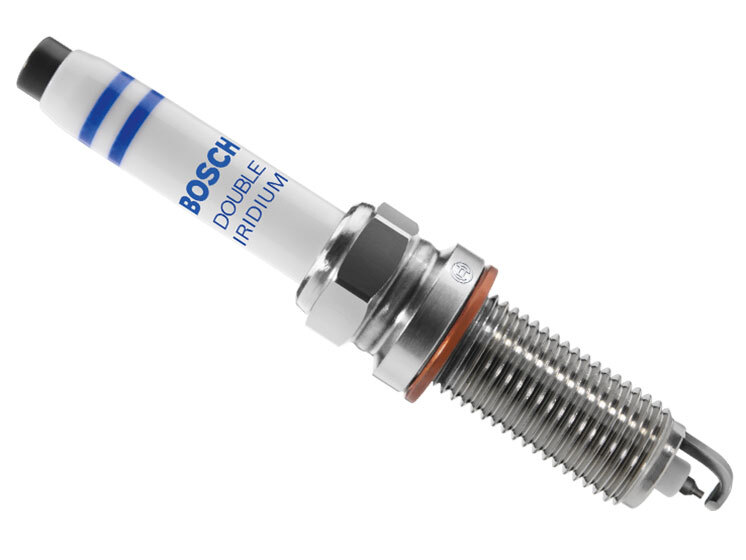
Spark Plug Brand Reality Check
Let’s get real about spark plug brands. People love to argue over this, but the truth? Most reputable brands do just fine—as long as you’re using the right type for your car.
Bosch spark plugs? Solid. I’ve used them in everything from compact commuters to turbocharged beasts. Their quality control is on point, and they’ve been around long enough to know what they’re doing.
AC Delco spark plugs are a no-brainer if you’ve got a GM vehicle. They’re what your car likely came with from the factory. Their iridium and double iridium plugs hold up well over time, especially for folks who just want something that works without the fuss.
And when you hear “double iridium spark plugs,” that’s iridium on both electrodes. That means longer life, more consistent performance, and fewer replacements. If you’re keeping your car for the long haul, they’re worth the extra bucks.
DIY vs. Calling in a Pro for Spark Plug Replacement
Sure, replacing spark plugs sounds easy. Just twist out the old ones, pop in the new ones, right? If only it were always that simple.
When It’s Time to Throw in the Towel
Some newer engines hide the spark plugs in places that make you want to cry—like under intake manifolds or behind turbochargers. V6 and V8 engines? Good luck reaching those rear plugs without half-disassembling your engine bay.
And those coil-on-plug systems? They’re not hard, but you’ve gotta be gentle. Break a coil boot or a connector, and your cheap plug swap suddenly becomes a parts-shopping headache.
DIY Tips That Actually Help
If you’re doing this yourself, trust me—do one cylinder at a time. Unplugging everything all at once is a rookie move. Snap a few pics before you begin so you’re not playing “where does this go?” afterward.
Use a small dab of anti-seize on the threads (don’t overdo it), and check the gap—even if the package says they’re pre-gapped. And for the love of your future self, use a torque wrench. Eyeballing it leads to stripped threads or loose plugs—both bad news.
Also read: EPA – Keeping Your Vehicle in Shape
Frequently Asked Questions About How Long Can Spark Plugs Last
How long can spark plugs last in different types of engines?
It depends on your plug type and how you drive. Copper spark plugs usually last 20,000–40,000 miles. Platinum goes 60,000–100,000, and iridium? They can stretch from 100,000 to 120,000 miles. But in turbocharged or high-performance engines, you might need to swap them out sooner—sometimes 25–30% earlier.
How long do spark plugs last compared to plug wires or coils?
In older setups, spark plugs often outlast plug wires. But with coil-on-plug systems, it’s more balanced. A good iridium plug might last longer, but if your coils or boots are tired, they’ll cause issues before the plugs do.
Do Bosch spark plugs really last longer?
Not necessarily. Bosch makes great plugs, but lifespan depends more on material than brand. A copper Bosch plug won’t outlast an iridium NGK or Denso. Still, Bosch plugs are consistent in quality and usually a safe bet.
How long do AC Delco spark plugs typically last in GM cars?
Pretty much what you’d expect based on the material. Their iridium plugs in a well-maintained GM engine? Easily good for 100,000 miles or more. Copper ones? More like 30,000–40,000.
What’s the advantage of double iridium plugs?
Both electrodes are made of iridium, which means minimal wear and longer life. We’re talking 120,000+ miles if your engine’s in good shape. They’re more expensive up front but usually pay off in longevity.
How long do car spark plugs last in harsh driving conditions?
Rough driving—think towing, stop-and-go traffic, short trips—wears out spark plugs faster. Even high-end iridium ones may only last 60,000–80,000 miles in those situations. Copper plugs could be toast at just 15,000–25,000 miles.
Summary: How Long Can Spark Plugs Last
When it comes to car maintenance, one question that always pops up is: how long can spark plugs last? The answer really depends on the type of plugs you have and how you drive. Copper plugs might only last around 20,000 miles, while iridium ones can push past 100,000. But again, how long can spark plugs last in your car also depends on things like engine condition and fuel quality.
If your engine’s misfiring, idling rough, or your gas mileage suddenly drops, those are clear signs it’s time for a change. Instead of waiting for problems, check your owner’s manual and stick to the schedule—it’ll save you money and headaches later. So next time you’re wondering how long can spark plugs last, remember it’s not just about mileage—it’s about keeping your engine happy. Stay proactive, and you won’t be left guessing how long can spark plugs last ever again.
Table of Contents: How Long Can Spark Plugs Last
Aftermarket Air Filter Audi BMW Brake Pads Brake Rotors Brakes Cabin Air Filter Calculator Car Batteries Car Brands Car Maintenance Car Manufacturers Car Shakes Car Shudders Check Engine Light check engine light on Clutch Coolant leak Diagnosis engine engine replacement Fuel German cars Honda Kia Mercedes-Benz Nissan OEM Porsche power steering Power steering fluid power steering oil Radiator Sap spark plugs Subaru Suspension Suzuki Toyota Transmission Volkswagen Water Pump WD40 Windshield

